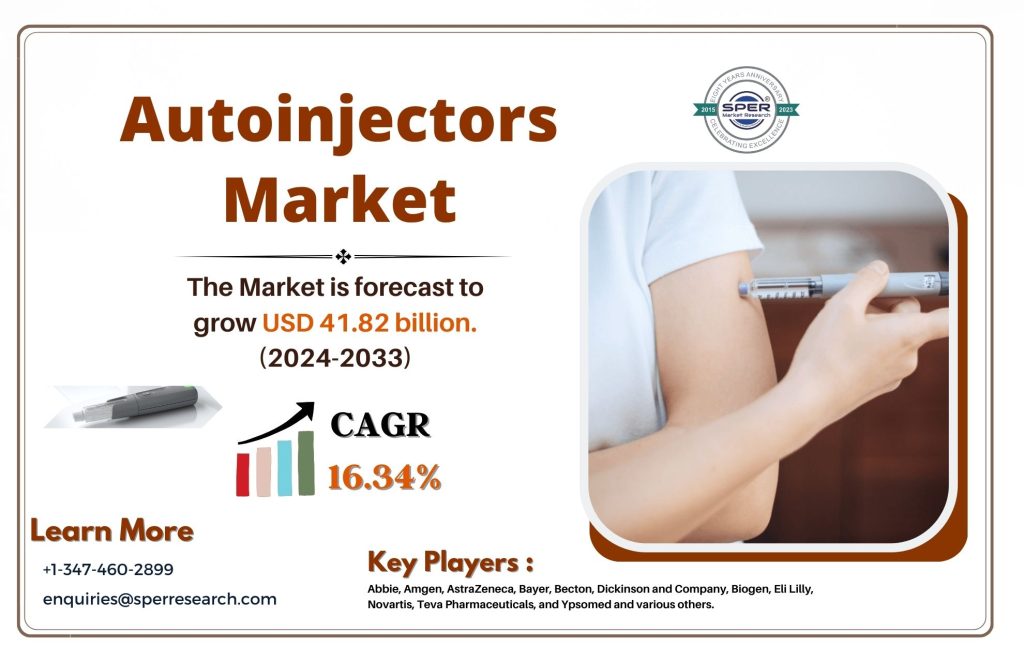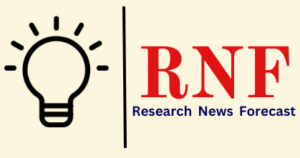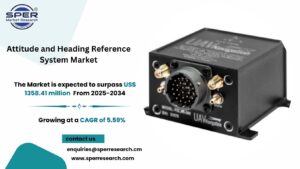Autoinjectors Market Growth and Share, Upcoming Trends, Revenue, Global Industry Size, Key players, Business Challenges, Forecast Report till 2024-2033: SPER Market Research

One dose of medication, mostly life-saving medications, is administered via autoinjectors. The main purpose of these spring-loaded autoinjectors is to apply drugs in a secure and safe manner. The auto-injector delivery system has revolutionized the industry and changed people’s perceptions. Human growth hormones are administered using self-injectors; insulin was recently supplanted by highly developed autoinjectors. Spring-loaded, single-use, disposable syringes (prefilled syringes) are the most common type of autoinjector. Autoinjectors are made to be simple to use and can be administered by inexperienced persons or by patients on their own.
According to SPER market research, ‘Autoinjectors Market Size – By Application, By Type, By End User – Regional Outlook, Competitive Strategies and Segment Forecast to 2033’ state that the Global Autoinjectors Market is predicted to reach USD 41.82 billion by 2033 with CAGR of 16.34%.
Among the benefits of autoinjectors are their ease of use and quick medicine delivery. Medical help must be provided right away for conditions including anaphylactic shocks and narcotic overdose. Patients who have experienced anaphylactic shocks in the past can benefit from the portability and speedy delivery of epinephrine autoinjectors. In order to address illnesses that require emergency medical attention, autoinjectors are essential. In addition, the players in the autoinjector market are refocusing their efforts on developing autoinjectors with technological innovations like connectivity for improved support, audio-visual cues for simple handling and administration, and large dose and volume devices for less frequent drug administration. These developments are all contributing to the growing popularity of autoinjectors in home care settings, which in turn is creating opportunities for the industry.
Request For Free Sample Report @ https://www.sperresearch.com/report-store/autoinjectors-market.aspx?sample=1
A drug’s viscosity has an impact on several administration-related factors. With the help of autoinjectors, a precise injection speed and volume of medication can be delivered at a set speed. Depending on how viscous the medicine is, the autoinjector’s design changes. To operate spring-powered autoinjectors, for example, springs must have distinct physical characteristics, such as length, thickness, and composition that match the drug’s viscosity. As a result, autoinjectors do not fit within the one size fits all paradigm. It is challenging to accommodate varying injection volumes and rates while maintaining safety and accuracy when developing an auto injector suitable for varying viscosities. Additionally, complicated engineering for various viscosities and volumes may have an effect on the autoinjector device’s performance.
Impact of COVID-19 on Global Autoinjectors Market
There has been a noticeable decrease in patients postponing seeking therapy and treatment once the limits were changed. The market for autoinjectors has benefited from COVID-19. Self-injections have become increasingly popular as a result of the COVID-19 pandemic, giving patients greater involvement and control over their care. The market for autoinjectors has seen a resurgence of advanced technologies because they enable improved injection speed and the management of treatment anxiety. A pharmaceutical business called Catalent Biologics reports a rise in demand for autoinjectors during the epidemic. Autoinjectors can easily and rapidly manage allergies and chronic illnesses without the need for hospital visits, thanks to the requirement for remote monitoring and excellent home care.
Global Autoinjectors Market Key Players
North America dominates the market as a whole. The area provides generous autoinjector usage reimbursement. The developed nations in the region also have a high degree of awareness regarding self-administration medication delivery systems, which is anticipated to fuel market expansion in the area. Additionally, some of the market key players are Abbie, Amgen, AstraZeneca, Bayer, Becton, Dickinson and Company, Biogen, Eli Lilly, Novartis, Teva Pharmaceuticals, and Ypsomed and various others.





